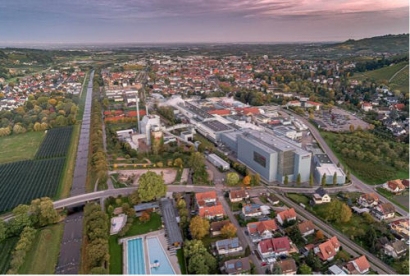
Koehler Group CEO Kai Furler said, “By switching from bituminous coal to biomass as the primary fuel for our location here in Oberkirch, we will be cutting more than 150,000 metric tons of CO₂ emissions a year.”
Sustainable fuel will help keep “Koehler promise for 2030”
The company has had a number of extremely successful projects designed to reduce the energy consumed in its paper production operations for many years now.
A few years ago, the company declared that it would be producing more energy from renewable sources than required for its own needs by 2030. This is why the company is now converting its coal-fired power plant at the Oberkirch location to biomass. With its Fuel Emissions Trading Act, the German government made it more difficult to use fossil fuels, which is why Koehler will be implementing its plans for the conversion three years earlier than originally planned.
Wood chips instead of coal reduce CO₂ emissions significantly
The change represents an investment of just under €60 million ($73 million) for Koehler, and will enable the company to produce the energy it needs for its paper production operations in the future with wood chips, green waste, and mill residue. This means that the fuel will be CO₂-neutral, as well as a renewable raw material obtained from the region. This material will be delivered by truck using bypass B 28.
Commissioning at the end of 2024
The plans to convert the power plant to use a renewable raw material started all the way back in 2018. Needless to say, this conversion cannot be carried out overnight, as it will require extensive technical modifications.
Koehler plays its part in meeting Paris Climate Agreement goals
In the Paris Agreement from 2015, 190 parties, including the European Union, committed themselves to taking measures to keep global warming significantly under 2 °C. Private companies were called on to contribute to emission reductions within this context.
Furler says, “With the conversion away from fossil fuels, Koehler is proactively playing its part in reducing global warming.”
For Oberkirch, this means a significantly reduced impact from CO₂ emissions.

